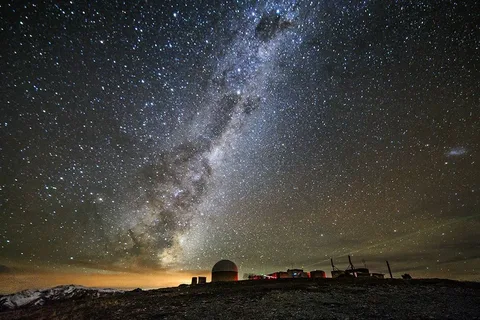Astronomy is the investigation of divine items, space and the universe overall. An intriguing field catches the creative mind of individuals from inquisitive youngsters to prepared researchers. This article will give you fundamental astronomy information including essential realities vocation potential, open doors and experiences into the miracles of room.
What is Astronomy?
At its center, space science looks to grasp the universe past Earth. This incorporates concentrating on planets, stars, universes and the universe’s tremendous peculiarities. Stargazers use telescopes and different advancements to accumulate information about these divine bodies.After that investigating their creation, developments and collaborations. The field joins parts of physical science, math and science to make sense of how the universe functions.
Basic Astronomy Information
To get everything rolling, we should check out at some fundamental astronomy information:
Celestial Bodies:
The universe is loaded up with different heavenly articles. These include:
- Stars: Enormous circles of hot gas that produce light and intensity. Our Sun is a star.
- Planets: Huge items that circle stars. Our planet, Earth, is one of eight planets in our planetary group.
- Moons: Regular satellites that circle planets. For instance, Earth has one moon while Jupiter has more than 70.
- Galaxies: Immense assortments of stars, gas, and residue. The Smooth Way is the world that contains our planetary group.
Light Years:
This term is utilized to quantify distances in space. A light year is the distance light goes in one year, around 5.88 trillion miles (9.46 trillion kilometers). For instance Proxima Centauri, the nearest star to Earth, is around 4.24 light years away.
The Huge explosion Theory:
This generally acknowledged hypothesis makes sense of how the universe started around 13.8 a long time back. It recommends that the universe began as an unbelievably hot and thick point and has been growing from that point forward.
Gravity:
An essential power that keeps divine bodies in a circle. The gravitational draw of the Sun keeps the planets, including Earth, rotating around it.
The Sun based System:
Our planetary group comprises the Sun, eight planets, their moons, and different items like space rocks and comets. Every planet has one of a kind qualities, like size, creation, and environment.
Information About Astronomy and Space
Understanding astronomy likewise includes investigating different ideas about space:
- Dark Holes: These are locales in space where gravity is solid to such an extent that nothing, not even light, can get away. They are shaped from the leftovers of gigantic stars that break under their own gravity.
- Nebulae: These are huge billows of gas and residue in space. They can be districts where new stars are conceived or remainders of dead stars.
- Exoplanets: These are planets situated outside our planetary group. Researchers have found a large number of exoplanets, some of which might have conditions reasonable forever.
- The Growing Universe: Perceptions propose that the universe is consistently extending. Worlds are creating some distance from one another, a peculiarity that has prompted the disclosure of dull energy, a strange power driving this extension.
Astronomy Career Information
For those keen on chasing after a vocation in space science. There are different ways one can take it. Here is some helpful astronomy career information:
- Astronomer: Astronomers direct examination to grasp divine peculiarities. They frequently work at colleges, government offices or examination establishments. A PhD in astronomy or a connected field is regularly required.
- Astrophysicist: These researchers center around the actual properties of heavenly items and the universe. They might concentrate on dark openings the way stars or the laws of material science in space.
- Planetary Scientist: This job includes concentrating on planets, moons, and different bodies in our planetary group and then some. Planetary researchers might chip away at missions to investigate different planets, like Mars or Jupiter.
- Astronomy Educator: Showing astronomy at schools or colleges is another remunerating career. Teachers move the up-and-coming age of researchers and assist individuals with figuring out complex galactic ideas.
- Telescope Operator: Numerous observatories employ telescope administrators to oversee and keep up with their hardware. This job requires specialized abilities and information on stargazing.
- Space Mission Specialist: A few experts work with space offices like NASA or ESA, assisting with arranging and executing missions to investigate space. This can include a blend of designing, science, and undertaking the executives.
The most effective method to Engage in Astronomy
To find out more, there are multiple ways of reaching out:
- Stargazing: You needn’t bother with a telescope to begin with! Going outside on a crisp evening can acquaint you with the miracles of the night sky. Search for star groupings planets, and even meteor showers.
- Visit a Planetarium: Planetariums offer shows and displays that can extend how you might interpret space and cosmology.
- Join a Nearby Stargazing Club: Numerous urban communities have clubs where lovers accumulate to notice the night sky, share information, and partake in conversations.
- Online Resources: There are incalculable sites, applications, and online courses devoted to cosmology. These can give significant data about recent developments in space investigation, and ongoing revelations, and that’s just the beginning.
Conclusion
Astronomy is a spellbinding field that extends how we might interpret the universe. With a mix of science, innovation and creative mind. It welcomes anybody inquisitive about the stars to investigate its profundities. Whether you’re searching for essential astronomy information or taking into account a profession in the field the universe offers vast open doors for disclosure. So get a telescope or essentially gaze toward the night sky no one can tell what you could find!
REad more


